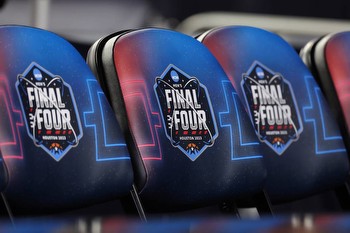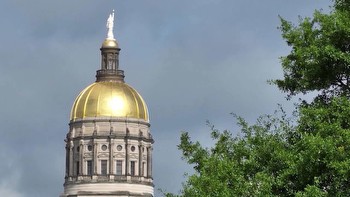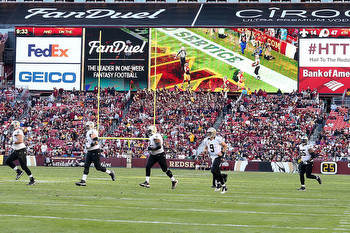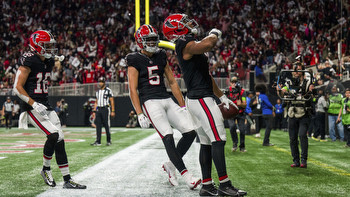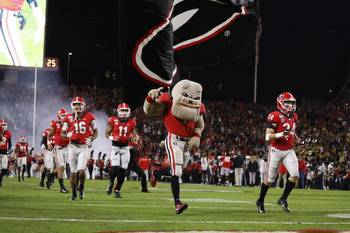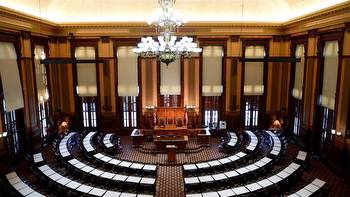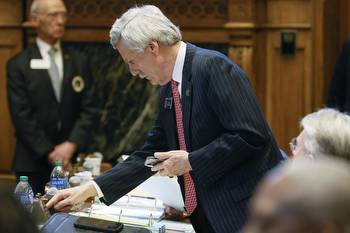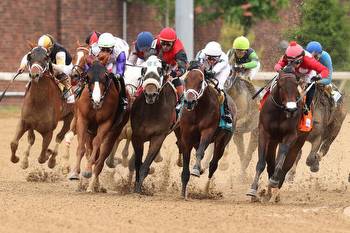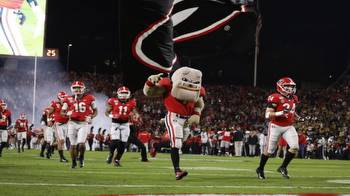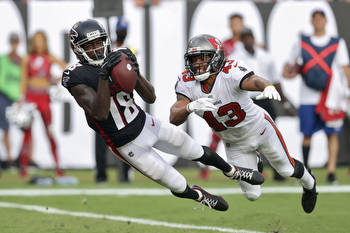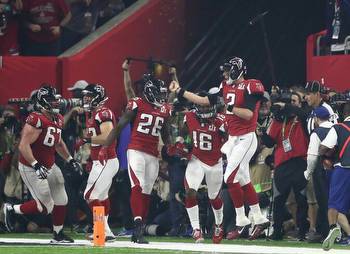Sports betting bills gain momentum as Georgia Legislature weighs options
Georgia House and Senate committees are lining up in favor of sports bettors this week, as they consider bills that range from making it legal to place a wager while attending a game to putting money down by phone or via kiosks at restaurants or bars.
The most expansive sports betting proposal is sponsored by Republican Sen. Billy Hickman and would legalize sports gambling and horse racing. His legislation advanced through a Senate Economic Development and Tourism Committee on Monday with an 8-1 vote.
The three sports betting plans on the move so far have some significant differences. While none of the bills would clear the way for casinos to open, Hickman’s bill would allow up to three horse racing tracks to be licensed. The bills’ sponsors also disagree on whether Georgia voters should decide whether sports betting must be approved by a statewide ballot referendum.
With Hickman’s bill, up to three horse racing tracks could be sanctified. Hickman said sports betting and horse racing could bring new jobs to rural Georgia.
“We already have horse racing in Georgia,” Hickman said at the Feb. 14 committee hearing. “It’s legal in Georgia. There’s what we call bush tracks in rural Georgia. What this would do is put it under a lottery and there would be sanctioned tracks.”
Gambling expansion in Georgia is often criticized for introducing an addictive product to the state at the expense of some people’s mental health and families that can least afford to lose money. Opponents also complain the sport of horse racing has a sordid history of mistreating animals and fatally injuring some under the guise of competition.
At a Feb. 14 hearing, Peggy McCarthy, a volunteer with the Georgia Pet Coalition, asked legislators to remove horse racing legislation, saying the industry is losing its popularity in other states and often relies on getting a cut of revenue from casinos and government subsidies.
Once the horses are no longer able to compete on the race track, it usually means finding a program that can take care of them for the remaining 20-30 years of their lives.
“Everyone within the industry and outside of the industry agrees that the funding has not kept up and vulnerable horses will be left without a safety net (and) be vulnerable to slaughter.” McCarthy said. “Georgia can already not handle the current number of unwanted and neglected horses and will be easily overwhelmed by the additional influx.”
The three bills would create new betting commissions under the Georgia Lottery to oversee regulations and licenses that would fund college HOPE Scholarships and preschools. Georgia has generated $26 billion for education from scratch offs, Powerball, and other games since 1993 when it sold its first lotto tickets.
On Tuesday, a House committee heard from online sports betting supporters and opponents during a public hearing on GOP Rep. Marcus Wiedower’s bill
On Thursday, a Senate panel is expected to hear from Athens Republican Sen. Bill Cowsert on his sports betting referendum that proposes to legalize sports betting statewide. Cowsert’s legislation would require support from Georgians voting on a constitutional amendment and portion of the revenue would go toward needs-based scholarships.
In Cowsert’s bill, the state legislature would create a gaming corporation to oversee the licensing of sports betting kiosks in bars and restaurants, as well as online wagering
For the past couple of years, the majority of legislators in both chambers have supported expanding legalized betting options, but none of the bills have been able to clear both chambers despite the push from professional sports franchises, casinos and the horse gaming industry.
Last year, a House bill that included legalizing casinos as well as horse race betting stalled on the backstretch when a 34-17 Senate vote fell shy of the two-thirds majority required for a statewide ballot.
This week, Wideower amended his plan to boost the state’s take by setting the amount licensees would be required to pay to 20% of their adjusted gross income. Wideower expects north of $100 million in new revenue for education in the first year should his proposal pass.
Hickman cited a memo written by former Georgia Supreme Court Justice Harold Melton that argues that state lawmakers can avoid a state referendum if sports wagering is handled by the Georgia Lottery and horse racing is treated like other sports betting events.
Within the first year of legal sports betting, Georgia could reap more than $300 million in revenue based on national projections, Hickman said.
In September, Pew Research Center reported that one-in-five American adults had bet on sports within the last 12 months with little variation based on educational level, income, or political affiliation.


